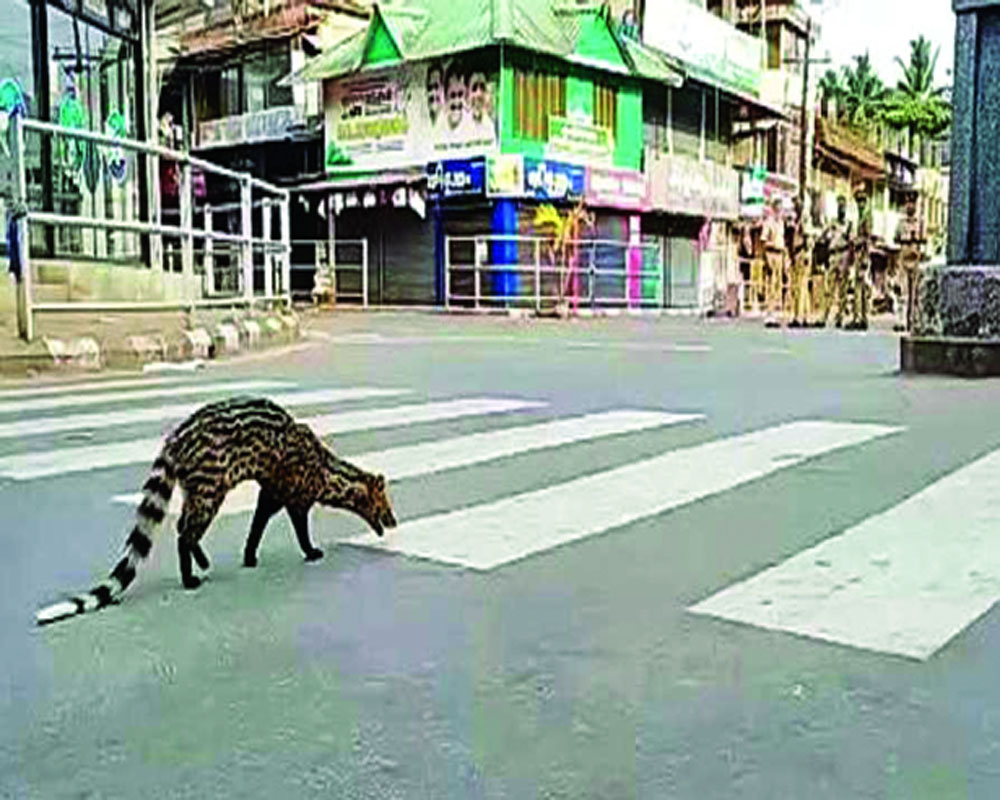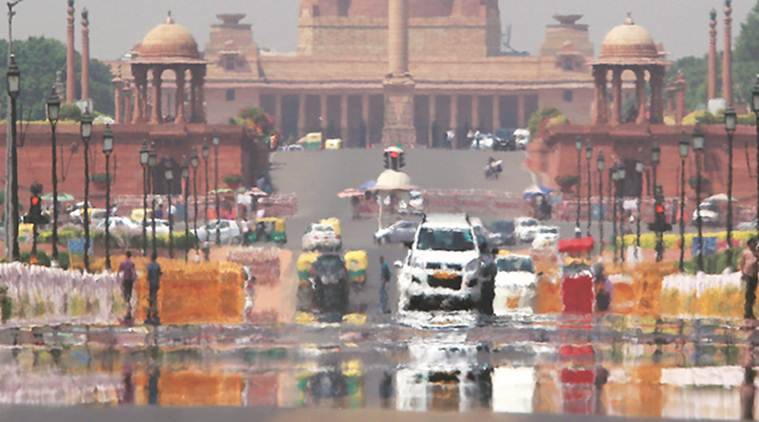Wild animals straying into city streets during the lockdown show how we have stifled our biodiversity
They say the Coronavirus is Nature’s way of reclaiming its space on its terms for all the degradation of its splendour and resources by humans. So cities across India, that are at a standstill, with no vehicles or people across vast swathes, are witnessing unfamiliar sights of wild animals straying from the natural sanctuaries they have sought out around the peripheries. From Italy to Japan to Thailand and even in India, the roads, that perhaps were once their transit corridors, are now part of their return journeys. In Japan, herds of sika deer, that you got to see only at the tourist hotspot called Nara Park, were seen wandering the streets. In Italy, one of the worst-hit countries by COVID-19, people spotted sheep and horses wandering around without a shepherd or rider. In Spain, more wild boars are having a free run in quiet, deserted streets. Back home, too, there are plenty of videos of animals frolicking on city roads. In Punjab’s Chandigarh, a sambar deer was seen walking on a zebra crossing. And in northern Kerala’s Kozhikode, the critically endangered civet, a species not seen since the 1990s, casually strolled past police patrol. Closer home, in Noida, nilgais are literally wandering the street in front of an otherwise busy mall. In the mornings, the twitter of the heron, the mynah and unseen birds soothes our souls.
While the wild animals may be testing newer territories, most of the urban species like street dogs, cats, monkeys and stray cows are not having it so good. Dependent on food waste generated by eateries and restaurants and home clearances limited in a time of crisis, these creatures are going hungry. Except for some samaritans, city animals and birds have been forced to fend for themselves foraging in garbage dumps. They are also a vulnerable lot as they could get the virus from humans instead. We cannot ignore them as they are part of our eco-system too. This is our wake-up call, for co-existence, co-dependence and the dire need to reverse our relationship with the sentient world. We care little for the natural world though ancient texts tell us about protecting and nurturing every creature or jiva, not exploiting them selfishly. Can a Coronavirus-free world ensure that endangered species do not go extinct? Can we limit indiscriminate human action that is causing much damage to the entire ecosystem and biodiversity? Can our cities develop mini sanctuaries and forests within them so that the animal world can thrive? Predatory food chain behaviour is not working, we must change that to accommodating the lesser species for our well-being.
(Courtesy: The Pioneer)








 OpinionExpress.In
OpinionExpress.In















Comments (0)